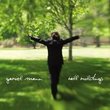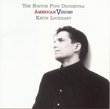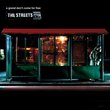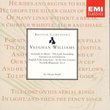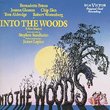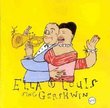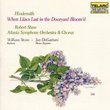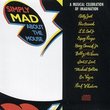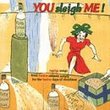| All Artists: Howard Hanson, Gerard Schwarz, Seattle Symphony Orchestra, New York Chamber Symphony, Carol Rosenberger Title: Music of Howard Hanson, Vol. 1 Members Wishing: 0 Total Copies: 0 Label: Delos Records Release Date: 3/3/1998 Genre: Classical Styles: Forms & Genres, Concertos, Historical Periods, Modern, 20th, & 21st Century, Instruments, Keyboard, Symphonies Number of Discs: 2 SwapaCD Credits: 2 UPC: 013491370521 |
Search - Howard Hanson, Gerard Schwarz, Seattle Symphony Orchestra :: Music of Howard Hanson, Vol. 1
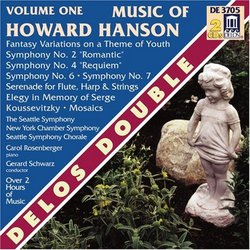 | Howard Hanson, Gerard Schwarz, Seattle Symphony Orchestra Music of Howard Hanson, Vol. 1 Genre: Classical
|
Larger Image |
CD DetailsSimilar CDsSimilarly Requested CDs
|
CD ReviewsAn Essential American Classic Daniel R. Greenfield | Milwaukee, Wisconsin, United States | 05/26/2002 (5 out of 5 stars) "Howard Hanson (1897-1981) was one of the most significant American composers of his generation. Unfortunately, he has been largely forgotten today as a result of the romantic style of his earlier music, and his refusal to adopt a more modern musical style in his later works. He has been called the American version of Rachmaninoff. This excellent double-cd brings together some of Hanson's most loved symphonic works. The first: the Second Symphony ("Romantic") is perhaps his best-known work. But more importantly are some of the later works, better represented by the haunting Elegy (in memory of Koussevitsky), and the Fourth and Sixth Symphonies. The Fourth Symphony ("Requiem") is an incredible work, and the Sixth a tour-de-force that shows how in his later work Hanson had gone beyond neo-romanticism to forge a more modern style uniquely his own. At his best, Hanson's music is forceful, profound, deeply human and vulnerable. If you are at all interested in Twentieth Century American symphonic works, you really must have this wonderful set from Delos. These are essential American classics, must have music. Even if your tastes are more for the avant garde stuff, you will still admire the depth of this composer's music." An excellent collection of Hanson's beautiful music! acm@chem.ucsd.edu | California, United States | 09/10/1998 (5 out of 5 stars) "I hadn't previously heard any of Hanson's music except for the "Romantic", but on the basis of that symphony I bought this double CD set. I'm glad I did! The music is wonderful and is brilliantly played and the "Romantic" is as arresting as ever. I can highly recommend this as an introduction to Hanson's music for anyone who likes classical music. It's from the 20th century, but it's as lovely and stirring as Schumann and Brahms!" A compser who deserves to better known in Europe Gerard Lynch | Belfast, Northern Ireland | 03/14/2006 (5 out of 5 stars) "Howard Hanson (1896-1981) is one of the most popular composers of the 20th Century in the USA. He rejected the serialism and atonalism of his time and continuted writing warm, romantic, music long after it ceased to be fashionable among 'serious' composers, drawing strongly on his Nordic roots.
Sadly, he has never really established a reputation on this side of the Atlantic. If this fantastic twofer CD gets more of airing though, that could all change. If people know anything by Hanson, it's most likely to be the Second Movement of the Second Symphony, which was used as the theme for the film Alien. The Second Symphony is his most popular piece with American audiences and with it's warm, rich, harmonies and many delightful passages, especially on horns, it's not hard to see why. Three other symphonies are in this collection of which the outstanding one is the semi-choral Seventh, "A Sea Symphony". A number of other pieces fill the CD, with the pick of the bunch being the deeply moving and clearly personal Elegy for Hanson's friend Serge Koussevitzky. Koussevitzky championed Hansons' music as chief conductor of the Boston Symphony Orchestra. I wouldn't hesitate to recommend this to anyone who likes late-romantic music (think of a warmer Sibelius or a mellower Mahler) or is interested in the music of the USA. I also hope that Hanson will start to get his due recognition in the concert halls of this continent " |

 Track Listings (8) - Disc #1
Track Listings (8) - Disc #1